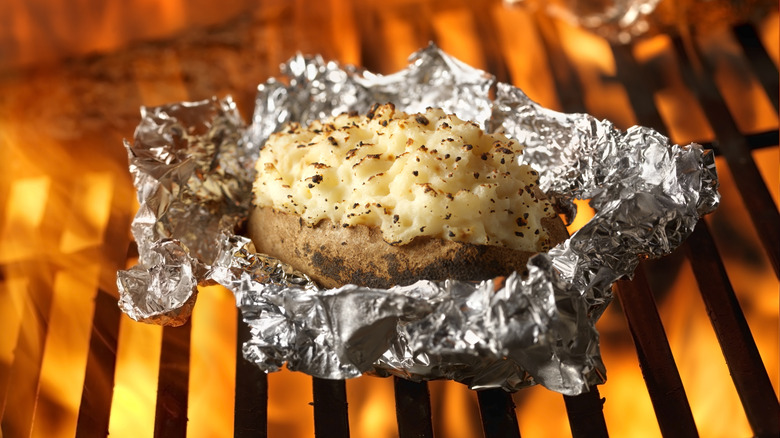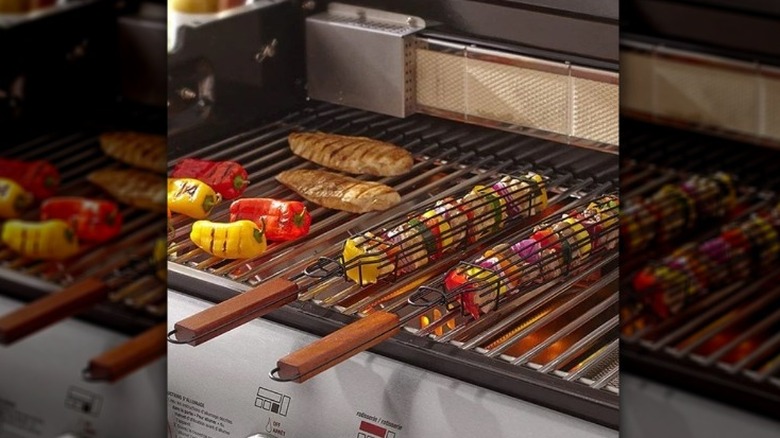Why You Should Rethink Using Aluminum Foil This Grilling Season
No summer season would be complete without a handy outdoor grill, which harkens back to the primeval days of roasting succulent meats over an open flame. While your fancy grill is a far cry from a campfire, it's more than capable of infusing meat and vegetables with a smoky flavor. And if you're like most backyard chefs, aluminum foil is probably your go-to accompaniment for grilling; not only is it beneficial from a cooking perspective, but it also makes for an easier clean-up. That being said, this common kitchen item might have some downsides when it comes to environmental sustainability, and even some slight possible health risks.
Aluminum foil was first patented by Robert Victor Neher in 1910. Originally, the material was intended to replace tin foil and was commonly used in product packaging. These days, aluminum foil can be found in homes all over the world and is often used to cover and store foods. Despite its usefulness, you should consider its use from a more holistic perspective before using it on your grill this summer.
Using aluminum foil poses some sustainability issues
First and foremost, aluminum foil isn't the most environmentally-friendly option to use while grilling. Though it's possible to recycle this metal-based material, any foil covered in grease and/or food residue will likely not be accepted at your local recycling center. The reason? Well, it all boils down to concerns over possible contamination, which can put the recycling process at risk — which, in turn, means that contaminated foil will be discarded and instead sent to a landfill.
A more sustainable alternative to aluminum for grilling is a handy reusable grill basket. Resembling the fry baskets found at fast food restaurants, grill baskets keep foods contained in order to prevent them from falling through your grill's grates. They're also pretty convenient when it comes to cleaning up, as you won't have to worry about scraping away stubborn bits of food and metal after your cookout has wrapped.
Technically, though, it's not a perfect solution. Though a number of grill baskets are made with stainless steel, some use an aluminum coating — so even though it can cover your bases when it comes to being eco-friendly, it too, like aluminum foil, can come with some possible (albeit possibly minor) health risks.
Does grilling with aluminum foil pose health risks?
According to Healthline, small amounts of aluminum can be found in various food products like certain meats, vegetables, and dairy products. (To wit, trace amounts can even be present in water.) However, the body typically only absorbs trace amounts of aluminum, which means the metal doesn't pose a health risk in most situations.
Be that as it may, problems can arise when it comes to adding certain cooking tools and techniques into the mix if either or both can feasibly increase the aluminum content in the foods you eat. For instance, acidic foods and certain seasonings, including salt, heighten the amount of aluminum in food. High temperatures can also cause more metal to seep into your foods. So if that's something you'd like to avoid wholesale, you can always offset any potential risks by altering your grilling habits and turning toward more sustainable grilling accouterments.


